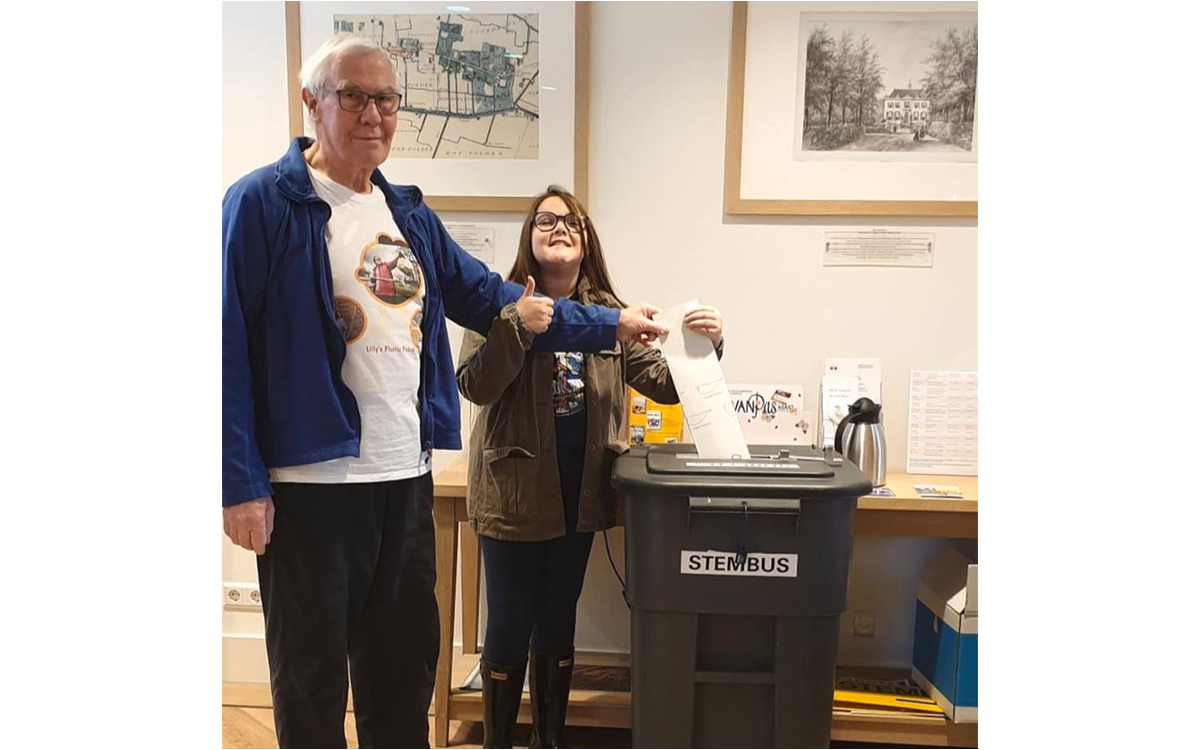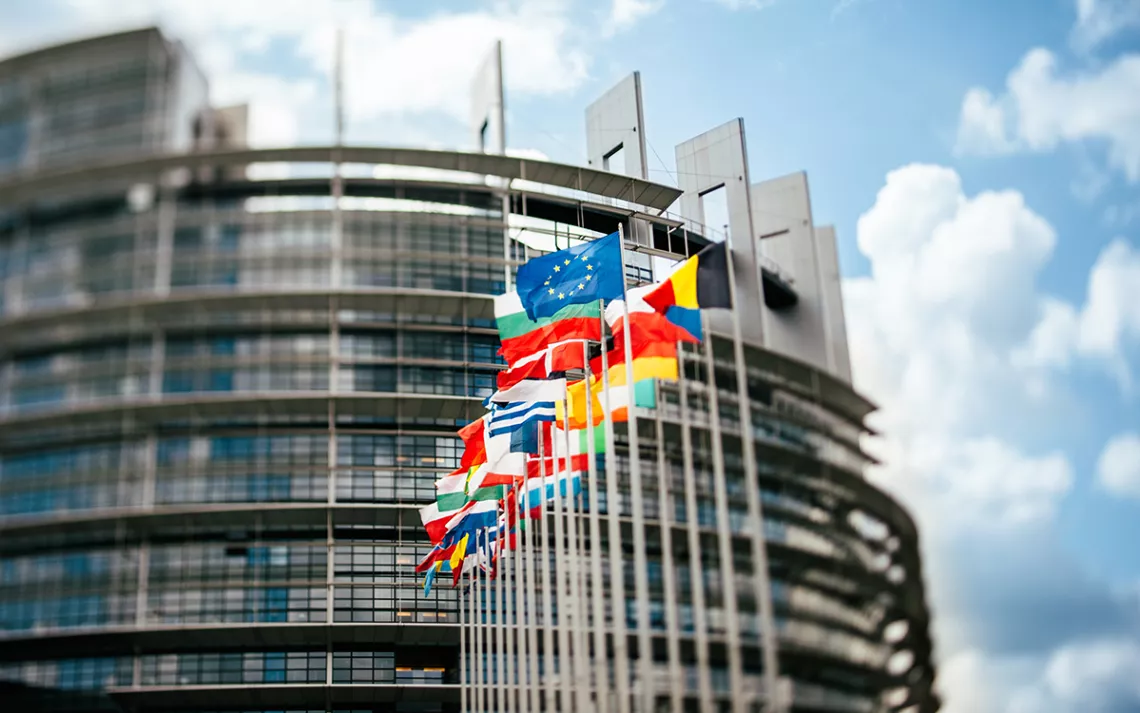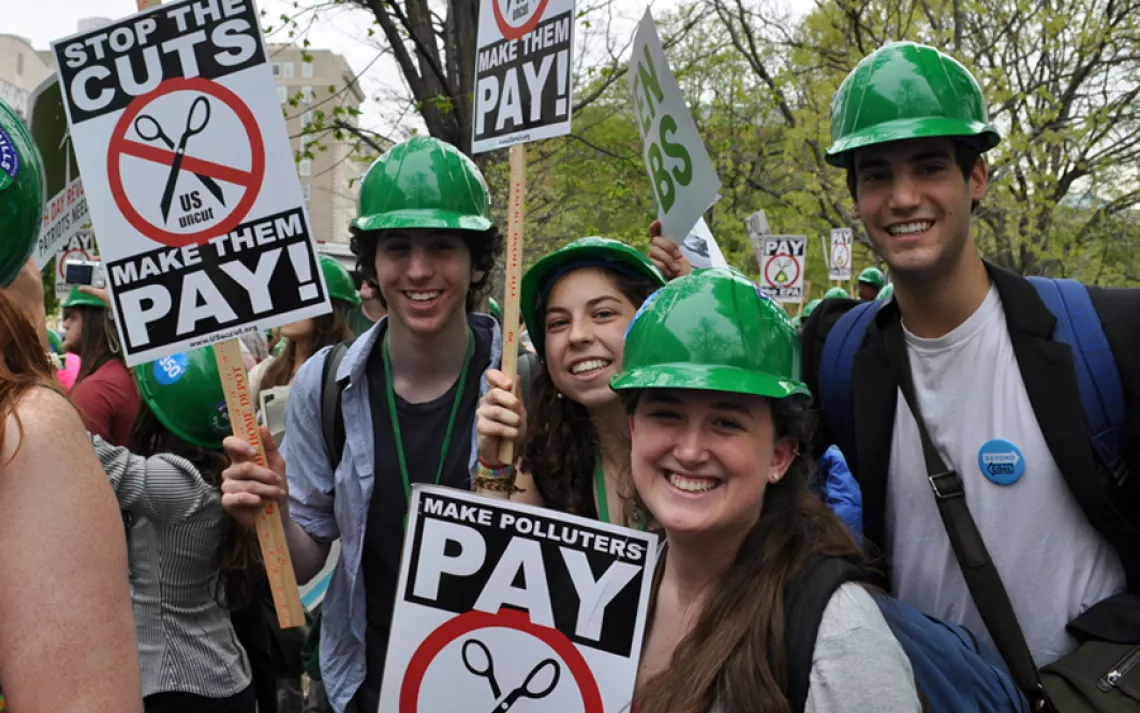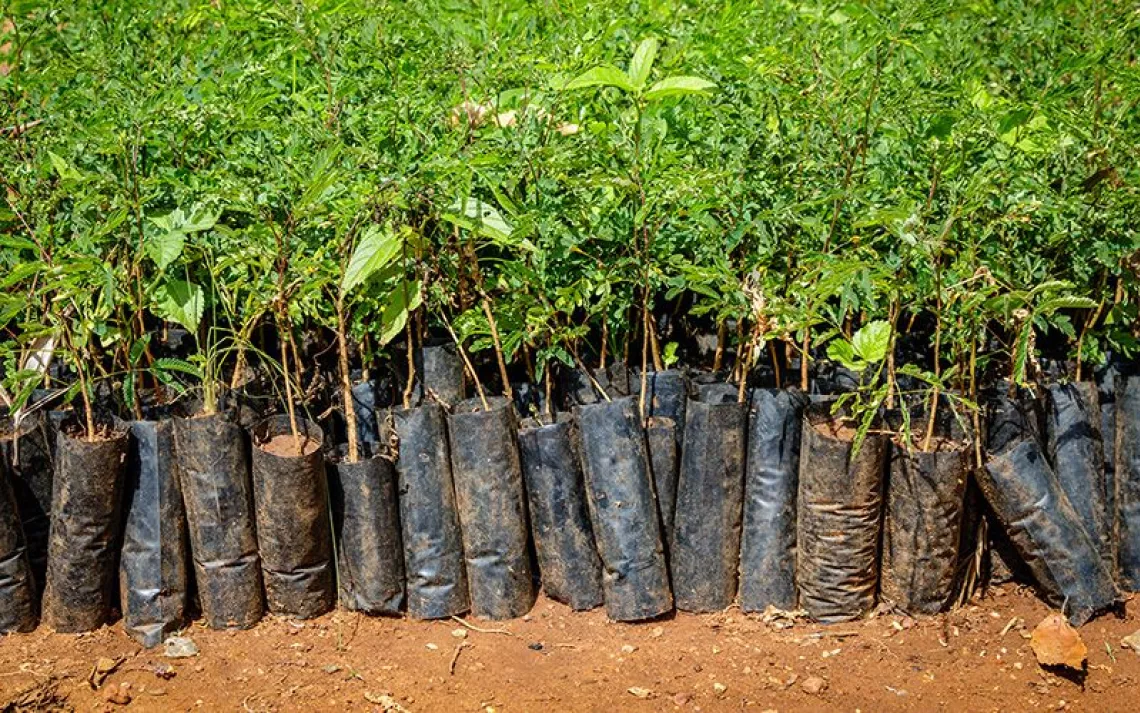Too Young to Vote? Get Your Parents to Vote for You.
Young climate activists in Europe and the US work to sway elections
Holly Gillibrand is a few years shy of 18. But on May 23, the day citizens of the United Kingdom cast their ballots in the 2019 European Parliamentary elections, she voted—in a sense. It’s not that she committed voting fraud, or that voting laws have changed—you still need to be 18 in Scotland, where she lives. But for this election, 13-year-old Gillibrand convinced a family member to cast a ballot for the candidate she supported—the one that had promised to take the most active stance on stopping climate breakdown. Her “vote” was part of a larger effort in Europe and Australia to attempt an election-season “climate coup.”
Young people have been mobilizing around climate en masse since 2018—the year that anti-gun-violence movement March for Our Lives drew hundreds of thousands of people to Washington, DC, and climate justice group Zero Hour held a youth climate march in 25 cities across the world. It’s also when the political action organization Sunrise Movement launched an effort to get midterm candidates to take a No Fossil Fuel Money Pledge, and perhaps most famously, when 16-year-old Swedish climate activist Greta Thunberg began her Friday school strikes outside the Swedish Parliament building, making weekly youth protests a commonplace phenomenon around the world.
But despite the growing momentum, and a powerful presence on social media (Gillibrand has almost 10,000 followers on Twitter), some of the youngest youth activists have been stymied in their effort to bring about change by their inability to vote. Inevitably, many elected officials don’t feel accountable to the young people taking to the streets because they don’t yet have the power to elect or reject them. California Senator Dianne Feinstein is a case in point. In February, she explained to a group of young activists that she was working on her own plan to address environmental issues, rather than signing or co-sponsoring the Green New Deal that they wanted her to support. “Well, you didn’t vote for me,” she told one of them when asked about it.
“What the senator says is unfortunately true,” says Mark Woerde, the founder of Netherlands-based Letsheal.org, which pushes brands to use influence for the public good. “This generation can’t vote, and so the politicians do not listen.”
To try to tackle the problem in Europe, Woerde teamed up with 11-year-old climate activist Lilly Platt—one of the first young people to start a school strike in the Netherlands. They wanted to make climate change a priority among voters in the 2019 European Parliament elections, which happen every five years, and thought they might do so by getting young people to ask adults to “gift” them their votes. (The European Parliament is a 751 member directly elected legislative body that amends and rejects all EU laws.) “In recent years, a lot of [older] people’s ‘green heart’ has disintegrated,” Platt explains, “but they find that they still have it deep inside them.” The young activist’s grandfather Jim Platt agreed to let Lilly “have” his vote, and the two recorded a video urging others across the EU to do the same. The video went viral, accompanied by hashtags like #climatecoup, #givethekidsyourvote, and #icanvote, and made it far enough to catch on with young people like Gillibrand.

Lilly Platt and her grandfather cast their vote in the 2019 EU Parliamentary Election. | Photo by Eleanor Platt
Across Europe, the green party surged. As more centrist political parties lost seats, the greens gained a historic 24 seats, more than in any previous election. Jan Rovny is an assistant professor of political science at research university Sciences Po in Paris. He says that while this rose out of a particular circumstance in each country, the outcome reflects an overall higher voter turnout, which he says was up around 8 percent across the EU. “I think it’s undeniable that for your average voter, not just your educated voter . . . the climate was more salient,” Rovny explains.
After Platt went to the polls with her grandfather, she posted a Tweet suggesting that her climate activist colleagues in the US might bring a “climate coup” to the 2020 presidential election. She tagged friends like 13-year-old Alexandria Villaseñor of New York City. Villaseñor is the founder of Earth Uprising, an organization that has been working to focus weekly climate strikes on protesting a certain issue or industry each Friday. Come primary season in the US, her group plans to push the climate coup concept Platt piloted, encouraging young activists to find an adult to “give” them a vote.
An increasingly wide network of youth organizations in the US are looking to influence elections directly or indirectly. Both the Sunrise Movement and Youth Climate Strike US are pushing Democratic candidates to thoughtfully address climate in their campaign platforms well ahead of the primaries. “A lot of it is weighing these candidates’ plans against one another and really getting into the nitty-gritty: like what’s good, what’s bad, and what’s missing,” says Feliquan Charlemagne, the 17-year-old creative director for Youth Climate Strike US.
During the 2018 midterms, the Sunrise Movement asked hopefuls head-on whether or not they would sign the No Fossil Fuel Money Pledge. Half the candidates Sunrise endorsed were elected to office, including congresswomen Alexandria Ocasio-Cortez of New York and Ilhan Omar of Minnesota. Charlemagne says Youth Climate Strike US will keep showing up at campaign events to ask about specific measures that tackle climate change. He thinks candidates respond to positive pressure from young activists because it makes them look better—especially on social media—where with activist groups’ combined hundreds of thousands of followers, the youth “reach” rivals that of some news outlets. “But it also makes their policy better,” he says.
With the 2020 US presidential election on the horizon, groups like Zero Hour are set to launch pointed attempts to sway adults vote by vote, says 17-year-old Arielle Martinez-Cohen of Los Angeles. The group is organizing a letter-writing campaign, in which young people will ask family members to take action on climate by casting a ballot. Martinez-Cohen may write to her grandmother. “I don’t want to stereotype, but she does watch Fox News and she does not support the work that I’m doing,” Martinez-Cohen explains. “And it’s actually been proven,” she goes on, referring to an academic article published earlier this year, “that teenage girls [in the US] are really effective at convincing their parents and grandparents that climate change is real.” The effect might even be the strongest, researchers say, on conservative-leaning family members.
 The Magazine of The Sierra Club
The Magazine of The Sierra Club




